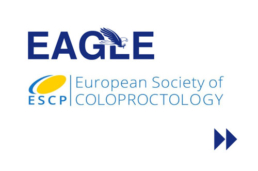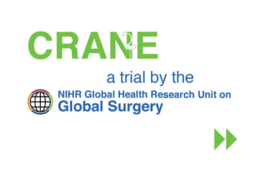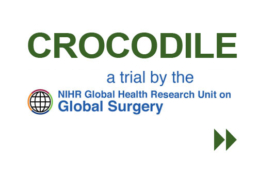Cancer
Improving surgical outcomes through collaborative research
The NIHR Global Health Research Unit on Global Surgery
Improving surgical outcomes through collaborative research
Cancer
Surgery often offers the best chance of cure, particularly in early-stage disease. It is estimated that 45 million surgical procedures are needed each year worldwide, yet fewer than 25% of patients with cancer have access to safe, affordable, and timely surgery. Death rates from cancer are falling in high income countries, but continue to rise in LMICs. Up to 1.5% of GDP is lost due to cancer in some LMIC regions. In 2018, GlobalSurg Collaborative conducted the biggest ever international study into surgical outcomes for cancer patients. 3000 collaborators in 84 countries collected evidence from <15,000 patients.
Cancer Research

EAGLE STUDY
The ESCP Safe-anastomosis Programme in Colorectal Surgery (EAGLE) is an international, cluster randomised-sequence study of a Safe-anastomosis Quality Improvement Intervention to reduce anastomotic leak following right colectomy and ileocaecal resection
Anastomotic leak is a severe, potentially life-threatening complication following right colectomy. Internationally, anastomotic leak occurs after 8% of right colectomies. Prospective cohort data demonstrate that patient selection, intraoperative factors, and technical variation are risk factors for anastomotic leak.

CRANE STUDY
CRANE is a feasibility study of a nutritional intervention to improve outcomes after cancer surgery in low-income countries. It aims to identify and validate a nutritional screening tool; identify a low cost sustainable nutritional intervention; and investigate recruitment and retention, data collection methods and the acceptability of a nutritional intervention to improve outcomes after cancer surgery in low- and middle-income countries.
The health economics component looks at the feasibility of collecting economic data and the design of resource use forms for a full trial. The health economics is particularly important essential given the importance of cost effectiveness in developing a long term sustainable solution.

CROCODILE STUDY
‘Little is known about colorectal cancer treatment delivery in India and the associated costs. CROCODILE aims to identify financial and non-financial barriers for colorectal cancer treatment compliance in India.’
Bringing together surgeons, researchers and policy makers to set the local research agenda according to patient need in LMIC and ensuring all patients have the opportunity to take part in our research.
